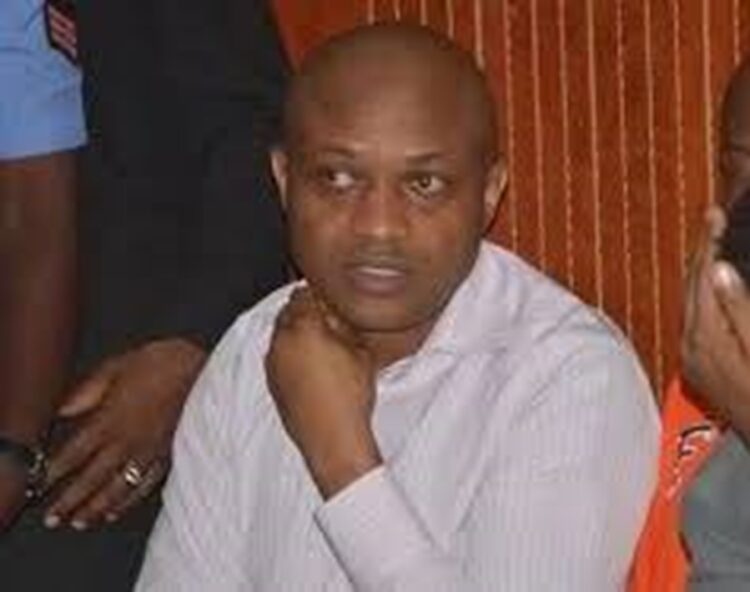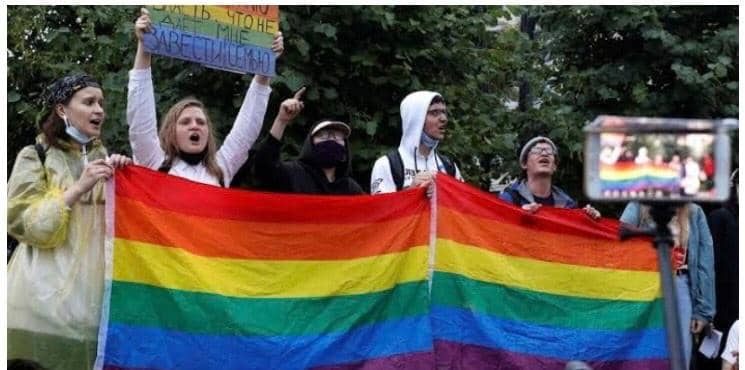News
Concerns mount over unregulated ‘black market’ organ trade in Nigeria

Numerous concerns have been raised by Nigerians about the proliferation of a thriving black market and illegal activities related to organ donation, harvesting, and transplantation within the country. This issue has emerged due to reports of a growing number of illicit organ removals from individuals without their consent, often for transplantation purposes or commercial sale.
Recently, Nigeria has witnessed a surge in reported cases of organ harvesting, involving the removal of vital organs like kidneys, liver, and heart, among others. Kidneys are particularly targeted due to their high demand and higher chances of success in transplantation.
A notable incident in this regard involved Ike Ekweremadu, a former Deputy President of the Senate, who was sentenced to nine years and eight months in a UK prison. He was found guilty of being a central figure in an attempt to harvest a kidney for his ailing daughter from a trafficked young man in London. This marked the first organ trafficking conviction under the Modern Slavery Act.
Most reported cases of organ harvesting in the country have involved compulsion, deception, abduction, and the exploitation of vulnerable Nigerians, particularly those living in poverty or marginalized communities. For instance, a mechanic named Chimaobi Eric Nwoko alleged that he was misled into donating his kidney to another person named Osinachi in exchange for a promised $20 million, a house in the United States, and a job.
Chimaobi, who is now struggling for his life, is urging the suspect to fulfill the compensation promise, as the suspect’s brother, Osinachi, has fully recovered while Chimaobi’s health deteriorates.
In a similar case, the Plateau State Police Command arrested a medical doctor, Noah Kekere, for allegedly harvesting a kidney from Mrs. Khende Kamal without her knowledge, causing her chronic pain for several years.
The prevalence of organ harvesting in Nigeria can be attributed to the absence of regulations and a governing body overseeing organ transplantation. Contributing factors include the lack of regulation and enforcement of medical ethics, poverty, inequality, and unscrupulous medical practitioners.
Expressing concern about this issue, the chairman of the Medical Consultants Association of Nigeria at the Lagos State University Teaching Hospital, Amisu Mumuni, emphasized the need for a regulatory body to oversee organ harvesting and transplantation, especially in Lagos State. He acknowledged the absence of such regulation in the past and welcomed the introduction of a new department to address this issue.
Dr. Usha Anenga, the Chairman of the Nigeria Medical Association in Benue State, emphasized that poverty is a driving force behind illegal organ harvesting. He highlighted the absence of specific guidelines for organ donation in Nigeria and called for a unified document that regulates the practice, involving stakeholders, experts, and proper enforcement.
In summary, the growing concern in Nigeria revolves around illegal organ harvesting and transplantation due to a lack of regulations, exploitation of poverty, and the absence of proper guidelines and enforcement. Efforts are being made to address this issue by establishing regulatory bodies and guidelines to protect individuals from illegal organ harvesting.
News
Isaac Boro Day: Presidential Amnesty Programme boss urges Niger Delta youths to shun violence

Chief Dennis Otuaro, the administrator of the Presidential Amnesty Programme (PAP), has urged the youth of the Niger Delta to avoid violence as the region commemorates Isaac Boro Day.
Isaac Boro Day, observed annually on May 16, honors Major Isaac Adaka Boro, a prominent Ijaw freedom fighter who died in Okrika, Rivers State, while fighting for the Nigerian government during the Civil War.
Boro is celebrated as an Ijaw hero for his efforts to liberate the Ijaw people, including declaring the Niger Delta Republic and striving for better conditions from international oil companies.
In a statement issued by his Special Assistant on Media, Mr. Igoniko Oduma, Otuaro paid tribute to Boro on the 56th anniversary of his death, recognizing him for his vision and efforts to improve the living standards of the Ijaw people. He described Boro as a courageous, selfless fighter who promoted equality and justice.
Otuaro emphasized that Boro believed in a united, progressive Nigeria where equity and justice prevail, noting that Boro’s efforts were aimed at maintaining the country’s unity.
He stated that commemorating Boro Day is a significant way to honor Boro’s legacy of community service and coexistence. The establishment of the Presidential Amnesty Programme, Otuaro added, was a response to the advocacy by Niger Delta youths inspired by Boro’s principles.
Otuaro encouraged Ijaw and Niger Delta youths to celebrate Boro Day responsibly, upholding the ideals for which Boro is remembered. He remarked, “Major Isaac Jasper Adaka Boro is an Ijaw hero and icon of the Ijaw struggle. His 56th anniversary commemorates his bravery and courage.”
He noted that many youths are inspired by Boro’s struggle, a legacy reflected in the creation of the Presidential Amnesty Programme. Otuaro stressed the importance of peace and stability in the region to achieve the program’s objectives.
Otuaro also urged the youth to reject violence, embrace unity, and love one another. He highlighted that Boro fought for a strong, united Nigeria where the Ijaws could hold a place of pride, unlike some current youths who engage in divisive behavior.
News
Billionaire Kidnapper ‘Evans’ Seeks Plea Bargain

Convicted billionaire kidnapper Chukwudumeme Onwuamadike, also known as Evans, and his co-accused Joseph Emeka, have requested a plea bargain in their high-profile kidnapping case.
The News Agency of Nigeria (NAN) reports that the State lead counsel, Mr. Yusuf Sule, disclosed the plea bargain request to the court on Thursday during the case’s call for re-arraignment. The case is being heard by Justice Adenike Cokers of the Ikeja High Court.
Evans and Emeka were scheduled to be re-arraigned on an amended five-count charge, including murder, attempted murder, conspiracy to commit felony to wit: kidnapping, and attempted murder.
Sule informed the court, “The case was for re-arraignment, but I am aware that the defendants have applied for a plea.”
The prosecutor also noted that the plea bargain terms are being reviewed by the Attorney-General of Lagos State, Mr. Lawal Pedro (SAN).
News
Peruvian Gov’t Classifies Intersex, Transgender People As ‘Mentally Ill’

Peruvian Health Minister Cesar Vasquez has classified transgender, non-binary, and intersex individuals as mentally ill.
On May 10, Peruvian President Dina Boluarte, Health Minister Cesar Vasquez, and Minister of Economy and Finance Arista Arbildo signed a decree. This decree states that transsexualism, dual-role transvestism, gender identity disorder in childhood, other gender identity disorders, and egodystonic sexual orientation are all categorized as mental health problems.
Cesar Vasquez explained that the decree was necessary for Peru’s public health services to ensure comprehensive medical attention for mental health issues.
The decree has sparked outrage among the LGBT (Lesbian, Gay, Bisexual, Transgender, and Queer) community, which has labeled it discriminatory.
A medical researcher at Lima’s Scientific University of the South noted that although the decree might have been well-intentioned, it shows a lack of understanding of complex LGBT issues and potentially opens the door to conversion therapy.
-

 World News7 months ago
World News7 months agoWhat we know about Israel’s war with Hamas
-

 Sports7 months ago
Sports7 months agoLaLiga: Everyone want to play with him – Vinicius on player Real Madrid should sign
-

 World News7 months ago
World News7 months agoIran calls on Islamic, Arab countries to confront Israel
-

 Tech7 months ago
Tech7 months agoTop 10 AI Skills to Learn in 2023
-

 Entertainment7 months ago
Entertainment7 months agoBET Hip-Hop Awards: Black Sherif wins big as Burna Boy loses seven nominations
-

 ICT8 months ago
ICT8 months agoApple Bows To EU, Unveils iPhone With USB-C Charger
-

 Entertainment7 months ago
Entertainment7 months ago‘Black Panther’ star Lupita Nyong’o breaks up with boyfriend, Selema Masekela
-

 World News7 months ago
World News7 months agoZelensky seeks defences for winter on visit to NATO














